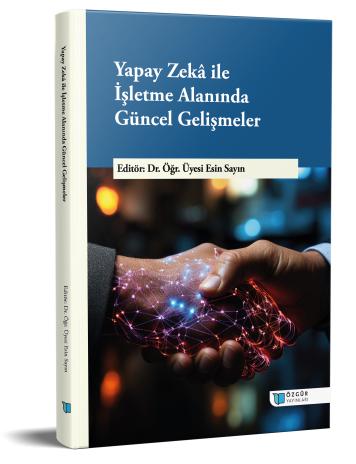
The Effects of Artificial Intelligence Applications on Marketing Function
Chapter from the book:
Sayın,
E.
(ed.)
2025.
Current Developments in Business with Artificial Intelligence.
Synopsis
Marketing activities are a dynamic and outward-looking field that encompasses the processes of bringing produced goods and services together with consumers and convincing them to purchase. Technological developments and changes in consumer behavior have evolved marketing approaches from traditional methods to artificial intelligence-supported applications. This integration enables businesses to transform customer interactions and adopt data-driven and personalized approaches.
Artificial intelligence-supported marketing offers significant advantages to businesses in many areas such as customer segmentation, personalized marketing, content creation and management, digital advertising optimization, customer service (chatbots) and predictive analysis. Thanks to artificial intelligence, businesses can understand customer needs more deeply, scale personalization, increase return on investment and gain competitive advantage by making real-time decisions.
However, this transformation also brings with it some challenges and ethical concerns such as data privacy, algorithm bias, concern about job loss, high investment costs and integration difficulties. In the future, the impact of artificial intelligence applications on marketing is expected to increase even more in areas such as hyper-personalization, autonomous systems, predictive marketing and human-AI collaboration. This integration will transform both operational and administrative marketing processes, enabling businesses to become more productive and customer-focused.

